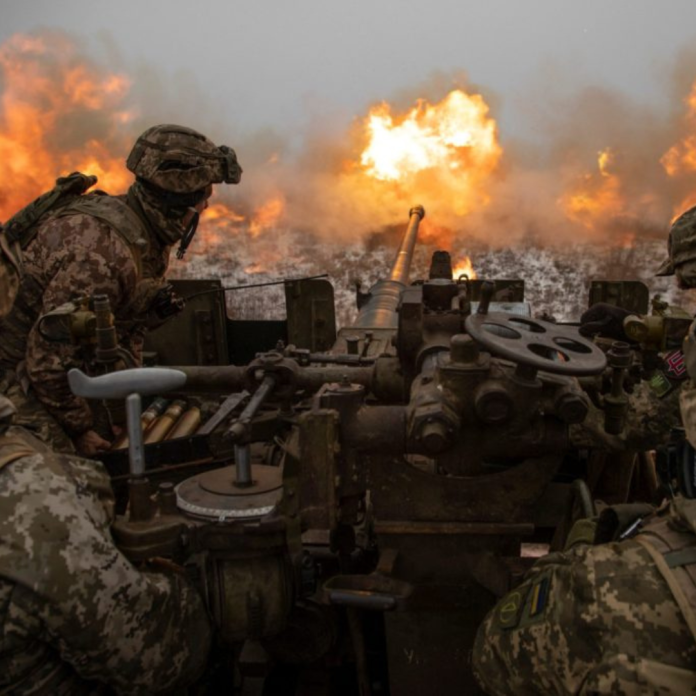As world leaders gathered separately last week to mark the 80th anniversary of the end of World War II, the irony could not have been more striking. In a world increasingly split by ideology, shifting alliances, and unrestrained state violence, it’s no longer far-fetched to ask: are we sliding into a third world war—or are we already in it?
Across the globe, the signs are flashing red. The post-1945 rules-based order is faltering. The era of American global leadership—Pax Americana—is fading, and in its place is a growing network of interconnected conflicts with no guiding hand and no rules. From Gaza to Kashmir, Sudan to Ukraine, from the Red Sea to the South China Sea, the sound of diplomacy is being drowned out by the thunder of missiles.
Policy adviser Fiona Hill argues we’re already in World War III—only most of the world hasn’t yet recognized it. The chaos, she suggests, isn’t on the horizon. It’s here.
A World in Flux
The fear of a world without control is nothing new. But today, that fear feels dangerously real. Former UK foreign secretary David Miliband recently told an audience at Chatham House: “I know that people always say the world is changing, but this feels like a moment of genuine geopolitical flux… as significant as 1989–90.”
His concern is echoed by others. Tony Blair called today’s moment “the most significant geostrategic event I can remember in terms of America and the world.” The European Union appears disoriented. And U.S. allies are no longer sure if they can rely on Washington.
Antony Blinken, President Biden’s former secretary of state, described the Trump era as a period of strategic vandalism. Decades of alliance-building were jeopardized in mere months. Trust, he warned, is eroding—and nations are preparing to act without the U.S.
The Collapse of Norms
Nowhere is the collapse of the rules more evident than in Gaza. For over three months, aid, food, and medicine have been blocked, in defiance of international court rulings. Israel, seeking security, has bombed Gaza, Lebanon, Syria, and Yemen—and is pressing Washington for a green light to strike Iran. All this with little pushback from Trump, whose earlier plan for Gaza involved the complete displacement of Palestinians.
European leaders are now raising their voices. Belgium’s foreign minister, Maxime Prévot, called the blockade “an absolute disgrace.” France’s President Macron was blunt: “If we condemn Russia in Ukraine, we cannot stay silent in Gaza.” But at an EU foreign affairs meeting in Poland, ministers couldn’t even agree on a joint statement, let alone take collective action.
Meanwhile, wars rage on in Sudan and Yemen. The UAE stands accused of supplying arms to genocidal militias, but international courts have failed to hold it accountable. In Kashmir, India and Pakistan—both nuclear powers—are exchanging fire, yet the U.S. has no ambassadors in either country, and no senior diplomats are engaged.
Ukraine and the Global Front
In Ukraine, the outlines of a global conflict are unmistakable. Russia has suffered close to a million casualties, and its war effort is backed—directly or indirectly—by China, Iran, North Korea, and others. What began as a regional invasion has become a systemic clash, a proxy struggle between authoritarianism and the remnants of liberal democracy.
Countries like India are officially neutral but remain economically tied to Moscow. Europe, once reliant on American leadership, is scrambling to coordinate its own response. Planning is underway for a European military force in Ukraine—and for the possibility of a Russian attack on European soil. France, the UK, Germany, and Poland are taking the lead.
America in Retreat
Donald Trump, who once told Ukraine’s President Zelenskyy “You don’t have the cards,” imagined a world reshaped in Yalta-style deals between great powers. His worldview echoes Putin’s—one of spheres of influence carved up by a handful of strongmen. But the world hasn’t fallen into line.
Instead, Zelenskyy outmaneuvered Trump diplomatically. Recent signs from Washington—like Trump’s running mate J.D. Vance now calling Russia’s demands excessive—suggest a shift. But for many European leaders, the message is clear: they must prepare for a world where the U.S. can no longer be trusted.
The End of the 20th Century
Germany’s President Frank-Walter Steinmeier put it starkly: “Russia’s war shattered Europe’s security order. But the U.S. turning its back on its own values is a shock of an entirely new scale.” He called it a double epochal shift—an end not just of an era, but of the 20th century itself.
The old order is gone. What comes next is uncertain.
But one thing is becoming harder to deny: this is not a peaceful world at the edge of war. This is a world already at war—with itself.



